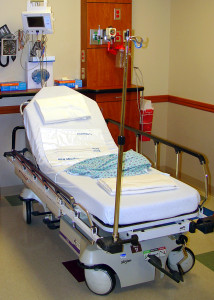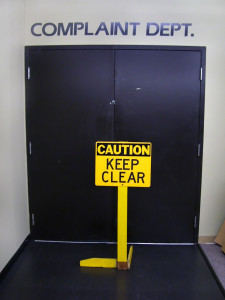Well, we could all certainly use some more beauty in our lives these days. We often think of beauty as a physical attribute but it is so much more. Kindness is beautiful, justice is beautiful, truth is beautiful, courage is beautiful and so many more things. In honor of National Make Life Beautiful Day, we wanted to announce another give-away from our office. On June 27th, we are going to be giving away 1,000 washable cloth masks from the parking lot of our Murfreesboro office. Just drive through and get a free mask. More details are below. In addition, below are some easy suggestions on how you could make life beautiful tomorrow, and we would love for you to comment with some suggestions of your own. Continue reading
Articles Posted in Medical Malpractice (Health Care Liability)
Overwhelmed
At this time of year, especially with a shortened season between Thanksgiving and Christmas, it is easy to feel overwhelmed. Shopping, wrapping, addressing, baking and all the other things that need to be squeezed into our already busy schedules can become stressful. But it is important to take a step back, take a deep breath and realize that this type of overwhelmed is rooted in something joyful. We buy the presents, send the cards, bake the cookies, etc. because it is part of a season of joy and festivities. But, there is another type of overwhelmed. Continue reading
Do You Know the Third Leading Cause of Death in the United States?
After heart disease and cancer, accidents are the number three cause of death in the United States. Of course, accidents is a broad category that encompasses a lot including medical malpractice. In fact, more than 250,000 people die each year from surgical errors and other medical negligence. So what is medical negligence? Many folks think that if they have a bad outcome then someone must have committed malpractice, but actually that is not correct. Here are 5 basic facts you need to know about medical malpractice. Continue reading
After an Accident, You May Not Want to Sue but You May Get Sued
The New York Times published an article this week detailing how many hospitals, one of which is in Tennessee (LeBonheur Children’s Hospital in Memphis), have started suing their patients by the thousands for unpaid medical bills. Many of the patients had insurance and the hospitals were suing for deductibles and co-pays. According to the article, more than half of the reports to credit bureaus were a result of unpaid medical bills. Of course, in addition to the cost of litigation and the underlying medical bill, this affects people’s credit rating and overall financial health. Consider this from a study by the Commonwealth Fund:
43 percent had used up all their savings to pay their (medical) bills, 43 percent had received a lower credit rating as a result of their debt, 32 percent racked up debt on their credit cards, 18 percent said they had delayed education or career plans. People with lower incomes were particularly affected: 37 percent said they were unable to pay for basic necessities like food, heat or rent as a result of their (medical) bills.
Clearly, medical bills can be devastating to many families – even those with medical insurance. So how does this relate to a car accident or other injury-producing accident? Continue reading
We Hate To Disappoint People, But We Do. Everyday.
At The Law Offices of John Day, P.C., we have two intake specialists, Penny Whitaker and Lauren Bates. When people call into the offices for a free consultation, Lauren and Penny take the basic accident information for a free review by one of our award-winning attorneys. Let me say, Penny and Lauren do a great job; they understand that when people call our office they are often confused about their rights and options, scared about what the future may bring and looking for help. And, we desperately want to help. But all too often, we can’t and that is where the disappointment comes in. This is never truer than when someone did do something wrong and injuries or death resulted. Let me explain. Continue reading
Avoiding Medication Errors – Patient Safety

According to recent estimates, more than 1.5 million people in the United States are killed, injured or sickened each year by errors in prescribing, dispensing and taking medications. As a patient, there are steps you can take to avoid being injured, and advocate for your own health. To help avoid drug errors, consider following these precautions the next time you visit your doctor or pharmacist:
At your doctor’s office:
- Make a list of the medications you’re currently taking, and their dosage. Be sure to include any
New Technology Could Prevent Retained Sponges During Surgery
Here is the scenario we often see: a patient goes in for a surgery. The surgery is successful but the patient continues to experience pain and other symptoms without any identifiable source. Often the patients are treated as though they are whiners or malingerers. Finally, at some point, the medical providers realize the source of the patient’s pain and problems: a surgical item has been left inside the patient during the surgery. Of course, this necessitates a second surgery with all the attendant risks, more medical bills and more pain and suffering. Think this is a rare occurrence? Think again. Continue reading
How To Tell If A Doctor’s Mistake is Malpractice
Because the practice of medicine is complex, there is not an easy answer to this question. But, here are some things to consider when trying to decide if you have been the victim of malpractice.
First, a mistake has to be made. In legal terms, we call this falling below the standard of care. Did the doctor act or fail to act as a reasonable physician would in the same or similar circumstances?
Second, did the mistake cause any harm? This factor is called causation and is usually the trickiest part of medical malpractice cases. Why? Because under most circumstances, when a patient sees a doctor, there is a reason: they are already sick. So lawyers and the law must sort out whether the patient got worse because of the already existing disease process or the doctor’s mistake. Of course, there are some cases in which it is very easy to conclude the doctor’s mistake caused the harm. For example, if a sponge is left in a patient during surgery necessitating a second operation, then of course the doctor’s mistake caused harm. Or, if the doctor performed the wrong operation or performed it on the wrong body part, then causation is not going to be an issue. Continue reading
Feel Free To Complain
Some people are natural born complainers. Like this one from Middle Class Problems on Twitter: “A pecan from my maple and pecan slice has tragically fallen into my fresh coffee. Worst day ever.” (If you have never checked out Middle Class Problems, you should.) But some of us are loathe to complain. We do not want to be perceived as demanding, obnoxious, whiny, needy, etc. Or, we don’t complain because we think it will not do any good. But from my perspective as a personal injury lawyer, there are times when it is critical to complain. Below are 5 times you should complain freely and without hesitation. Continue reading
Fires and Medical Oxygen: 10 Things You Can Do To Protect Yourself
According to data published by the Tennessee Fire Incident Reporting System, in the past five years, seven people have lost their lives due to fires caused by medical oxygen. Another nine people were injured and the property damage associated with these fires exceeds $710,000.00.
Oxygen-rich environments present a very real fire threat. But, there are steps you can take to prevent a serious accident:
1. Keep oxygen canisters at least 5 to 10 feet away from ignition sources such as candles, fireplaces, stoves, etc.
 Tennessee Injury Law Center
Tennessee Injury Law Center








